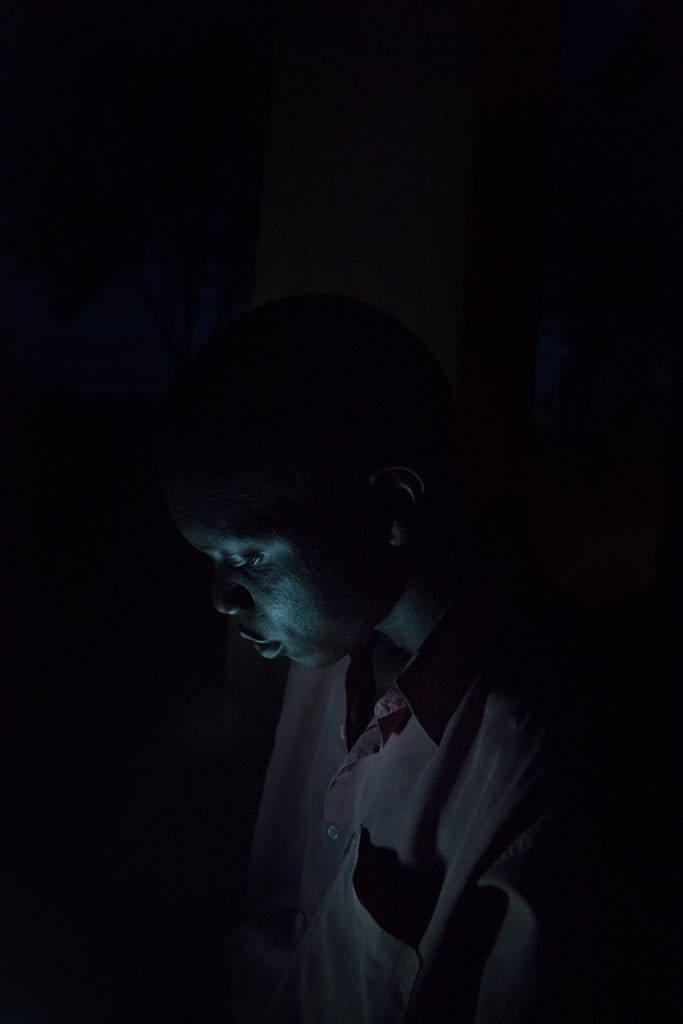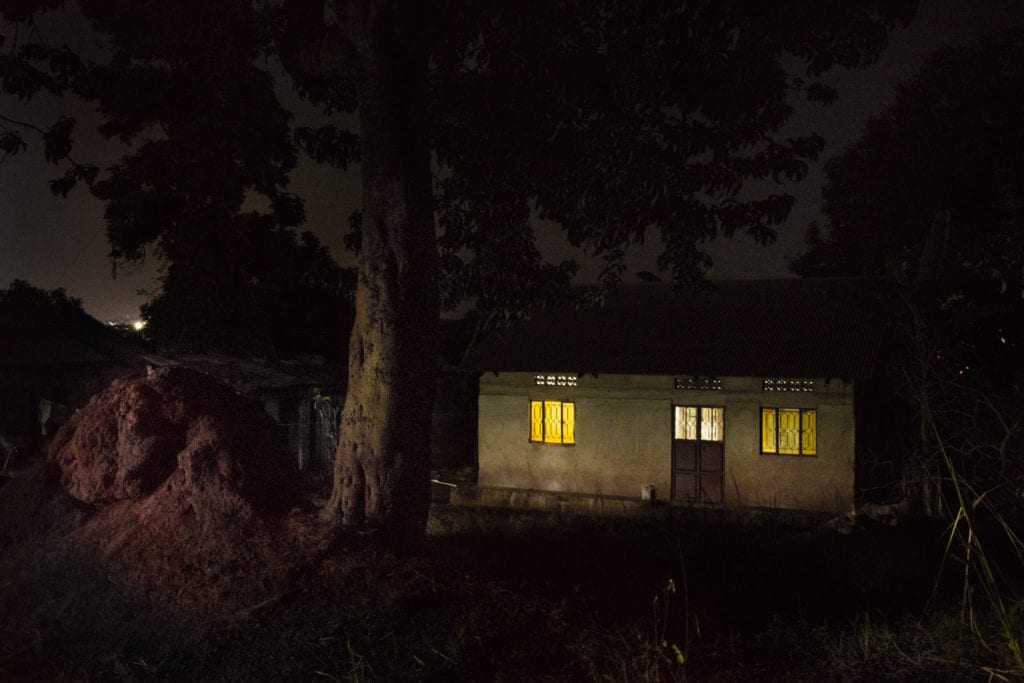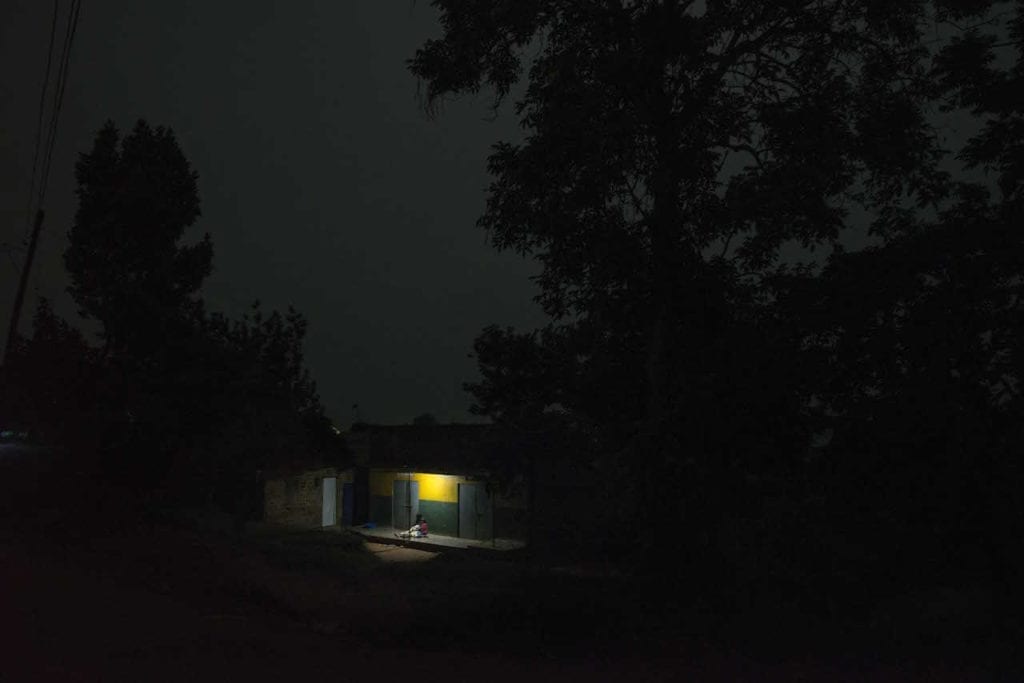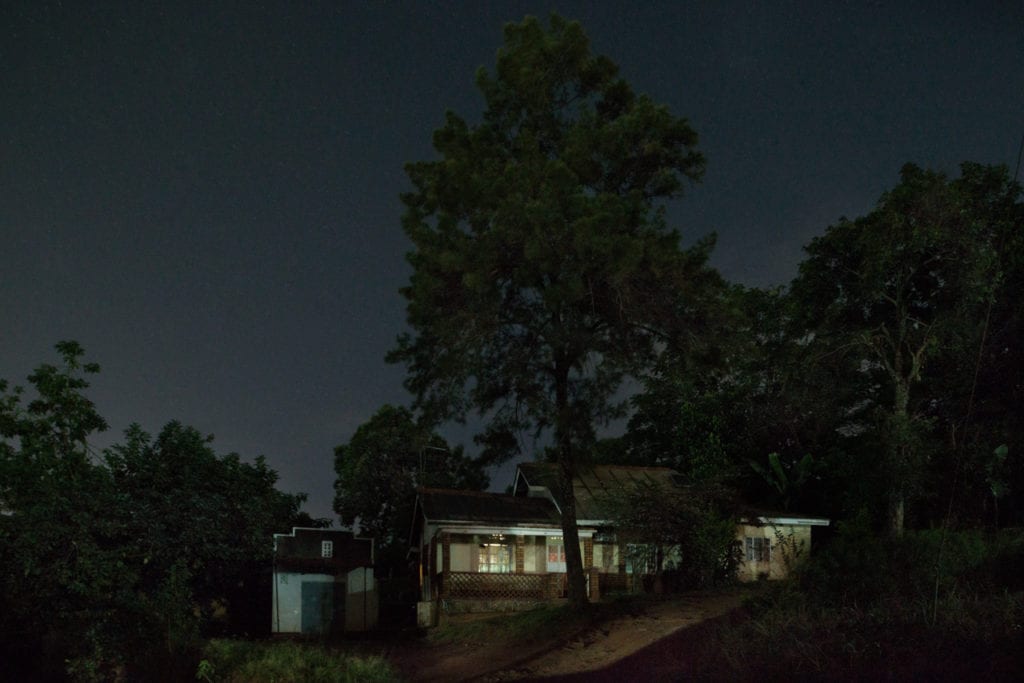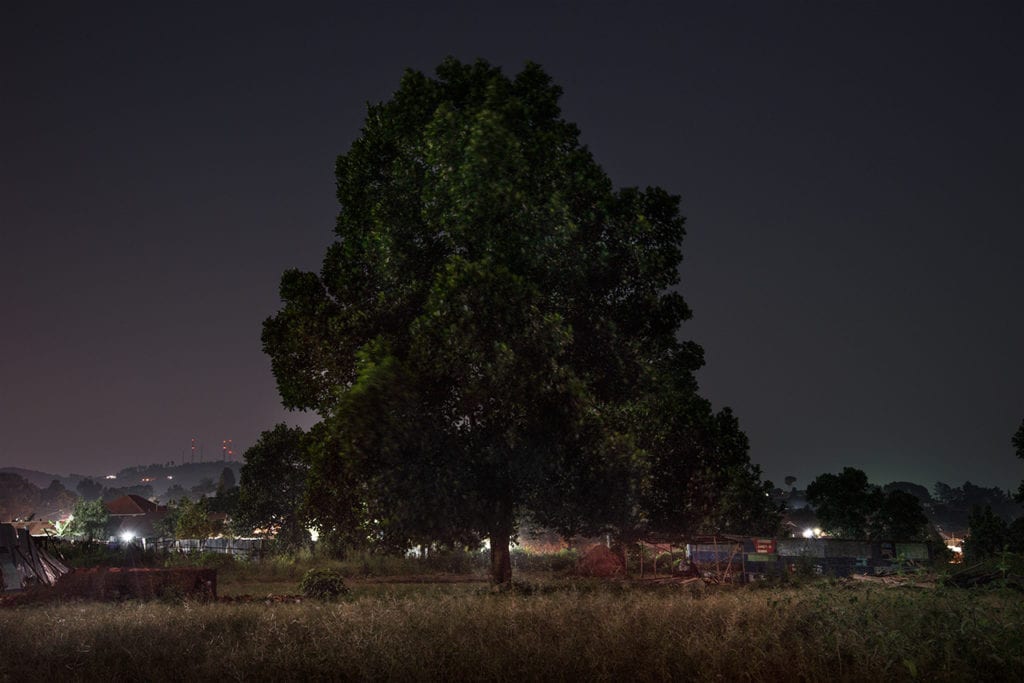Uganda’s population is one of the youngest in the world, with 77% of the population under the age of 30, and 52% less than 15 years old. It’s also one of the fastest-growing, with a population grown rate of 3.3%, compared to a world average of 1.2%.
It’s a dynamic that, as Irish photographer Robert Ellis points out, means the country is poised for rapid change. Uganda gained independence from Britain in 1962 and has had a troubled history since, including rule by the military dictator Idi Amin from 1971-1979, and a civil war with the Lord’s Resistance Army, ongoing since from 1987. But with the same president, Yoweri Museveni, in power since 1986, thoughts are now turning to what will happen when the 72-year old passes on.
“Uganda is in a moment of change,” says Ellis. “The population has more than doubled in the last 20 years. With such a young population, a new generation is emerging. There has been a rapid increase in internet usage with access to cheap smartphones, transferring money by mobile is becoming the new standard.”
Ellis has been visiting the country since 2013, when he stayed for four months to teach photography to students at the Nagenda International Academy of Art & Design. The college is based in Namulanda, a rural region in which life has changed little for years – though, set up in 2009 and offering cheaper fees than government-run institutions, the college itself is moving things on.
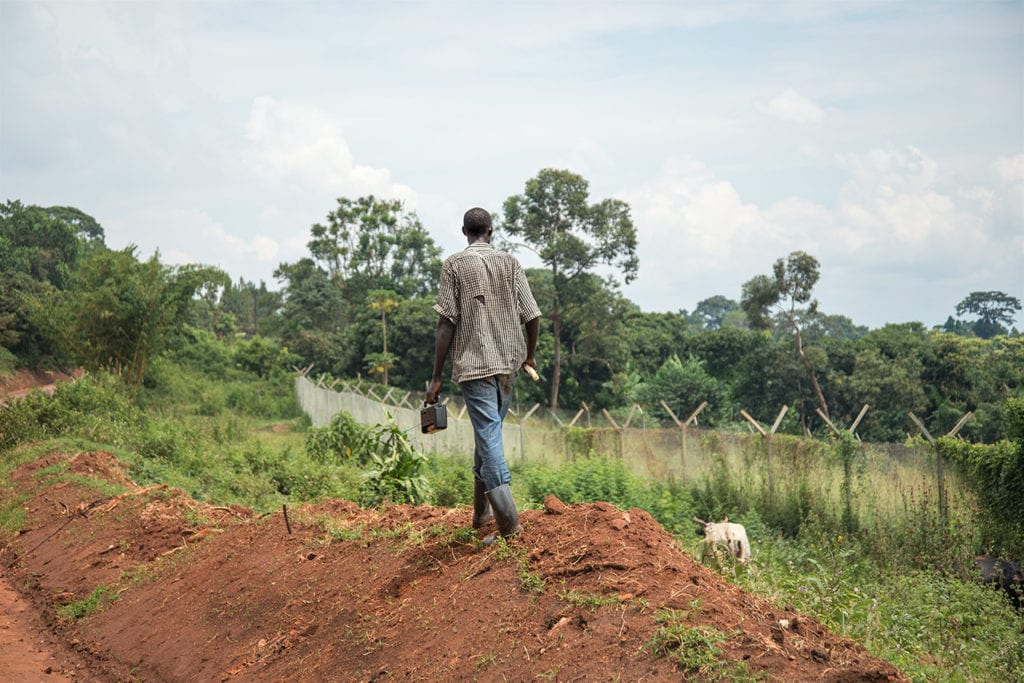
“I wanted to avoid making work in a documentary fashion,” he says. “I have come across photo essays about Joseph Kony [leader of the Lord’s Resistance Army] or the dictator presently in charge. I don’t think you need to know peoples’ stories in order to engage with them in a meaningful way.
“I became interested in how people habitually approach photographic images, and came across Viktor Shklovsky’s principle of ‘estrangement’ from literary theory. By presenting a repetition of different subjects within this work, in the form of ant hills, trees and even people, it is my hope that the viewer would prolong their engagement or thought process when they come across these images.”
He’s also collected Ugandan proverbs passed down over the generations, little chunks of language that he sees as repositories of local knowledge. “The local proverbs pass on wisdom learned from living in that place,” he says. “’A small anthill does not call itself a mountain’; ‘Moving is seeing, coming back is to tell a story’.
“Language is so important in Uganda – there are over 40 local languages, plus Lugandan, Swahili and English,” he adds. “I wanted my project to attest to the value of spoken language.”
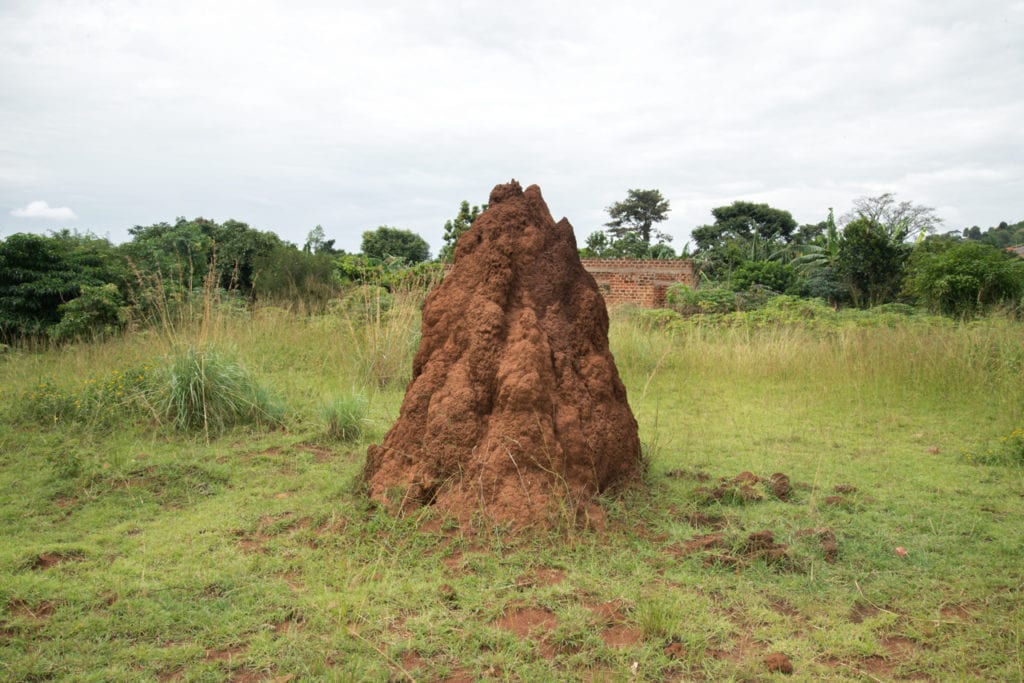
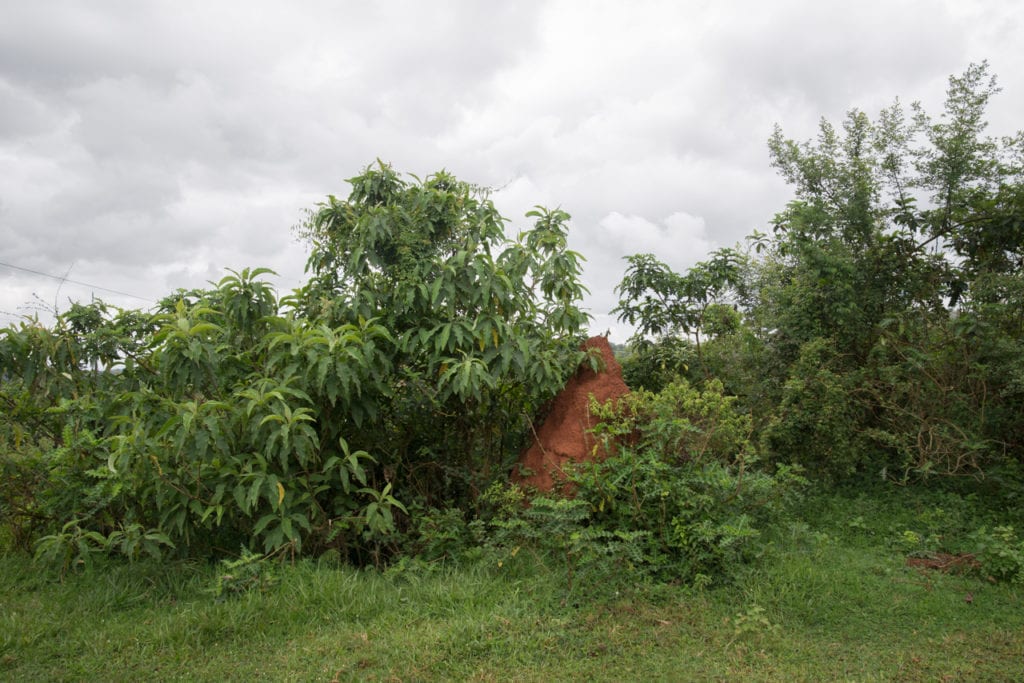
And in recording these tensions, between the past, the present and the future, and between the familiar and the unfamiliar, he’s evoking something of his own experience in Uganda – a country he initially found completely foreign, before recognising the resonances with home.
“In the beginning I was very much the outsider, called the ‘Mzungu’ [the ‘white man’],” he says. “But then I learned that ‘mzungu’ originally meant ‘aimless wanderer’, which felt much more accurate for me. Teaching in the college has definitely helped, it’s given me a way to get to know the students and surrounding community.
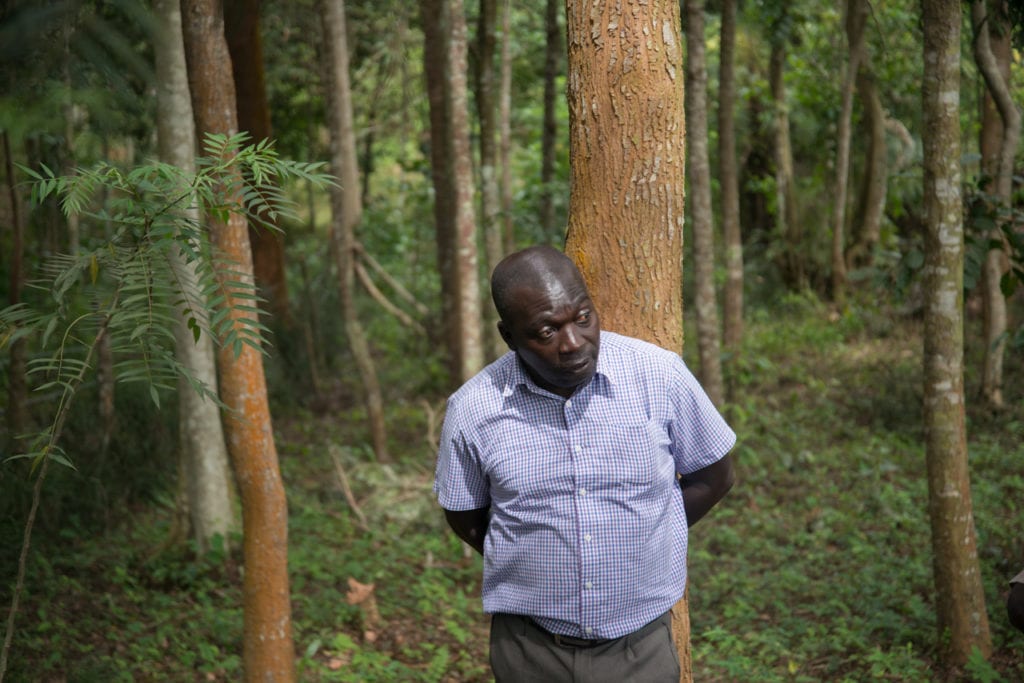
Ellis is now based between Dublin and rural Ireland, but he’s still a visiting lecturer at Nagenda International Academy, and just back from a one month trip there when we speak. He’s just shot a series of night-time portraits, evoking a quality of night that’s different now in Uganda, after the advent of electricity and, increasingly, mobile phones. “The moon shines like daylight,” runs the proverb, “yet the nature of the night is not missing entirely.”
www.robertellis.eu
